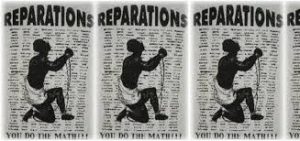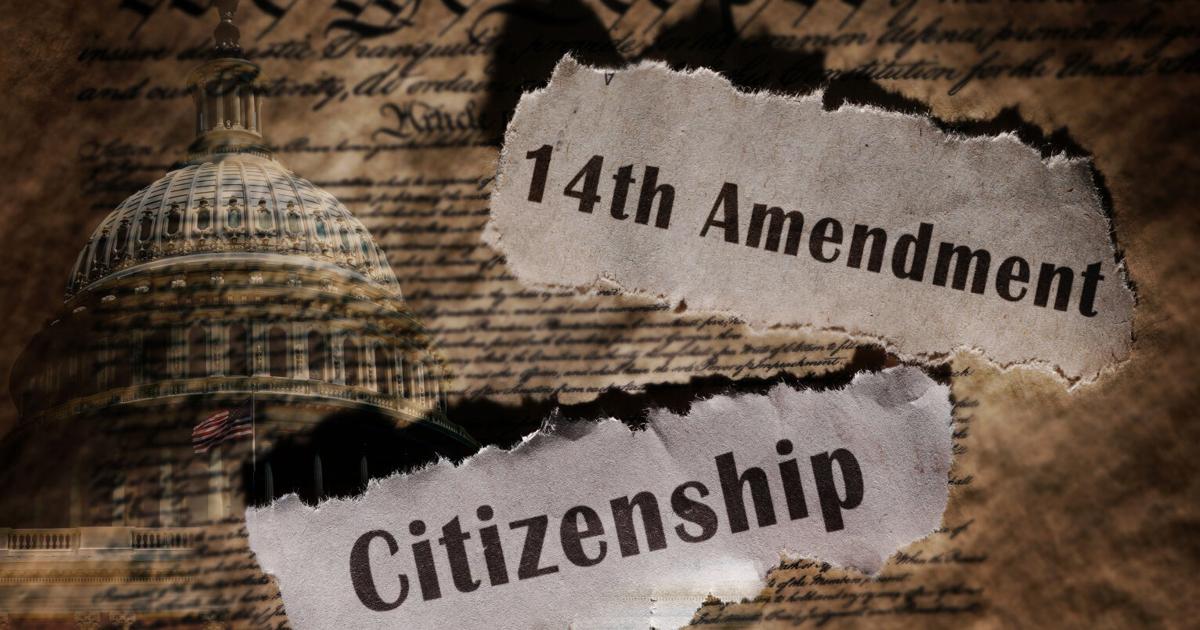(ThyBlackMan.com)
“Pieces of silver and pieces of gold. Tell me,
Who’ll pay reparations on my soul?”
Gil Scott-Heron
Talk of reparations has entered the 2020 Democratic presidential primaries in discussions among the candidates, some of whom have said they would support them. Never mind the difficulty in determining who would be eligible, and the divisiveness this would cause, the notoriously low turnover of dollars in our community – the number of times dollars change hands in exchange for goods and services before they exit – would make monetary reparations virtually useless as a way to sustain generational improvement. Indeed, if the goal is to “repair” the damage done by slavery and Jim Crow, I would offer three examples of what any form of reparations should seek to fix.
Correct the historical record regarding the role enslaved Africans, and slavery in general, played in the development of the United States: For example, we still hear arguments that the Civil War was not about slavery but about “States’ Rights”. And that monuments to the losers of that war are mere celebrations of southern heritage and not symbols of oppression.
A quick reading of the Declarations of the Immediate causes Which Induce and Justify the Secession of South Carolina from the Federal Union, the first southern state to secede, will clearly show that the issue of slavery was central to their argument. The ‘Declarations’ begin by lamenting northern states refusal to return run-away slaves as promised in the Constitution saying that, “This stipulation was so material to the compact, that without it, that compact would not have been made.”
The ‘Declarations’ further state that, “The right of property in slaves was recognized by giving free persons distinct political rights” and that now the northern states have elected “a man to the high office of the President of the United States whose opinions and purposes are hostile to slavery.”
We need to teach the true and complete story of the founding and development of the United States, including the roles of all of its people played in its rise. This, in and of itself, would go a long way to repair the legacy of racism in our country’s history that reparations would seek to rectify.
Make a commitment to fix public education: Our schools are failing our children. We see it in the way “minority” children lag behind their counterparts on standardized tests and, more importantly, their inability to function in the workplace. Employers most often complaint is the “jobs versus skills” mismatch of applicants when trying to fill vacancies. This also impacts our reliance on immigration as companies vie for H-1B visa recipients to fill high paying jobs, especially in the tech industry. Quality free, compulsory, public education was essential to establishing America’s cultural, economic and military preeminence and, without it, our country will fall behind our competitors.
Fund a domestic ‘Marshall Plan’ to rebuild our cities: For most of the second half of the 20th century major urban centers experienced “white flight” leaving behind concentrations of poverty. We now see a resurgence in the attractiveness of “urban living” and the resulting displacement of poorer residents to make way for more upscale “live-work-play” luxury communities. We also see the highest paying jobs locating in cities, or close-in suburbs, which further exacerbates the competition for affordable living spaces in the urban core.
At the same time as we see urban populations begin to grow again, we see the strain on aging infrastructure. Virtually all of the public transit systems in our big cities are in need of major repairs or upgrading as are their roads, bridges and public buildings. The jobs that would be created putting inner-city residents to work making these repairs, and providing goods and services to those employed making these repairs, would greatly boost local economies and likely also lessen the fierce competition and necessity of large public subsidies to attract new employers as in the recent bidding for Amazon’s new HQ2.
Monetary reparations alone will solve nothing. After the cars, jewelry and clothing have been bought, our communities will be no better off than before. If we really want to repair the damage done by injustices of the past, we should insist that any reparations be in the form of things that will have a generational impact. Honoring the contributions of enslaved people, and indeed all “the wretched refuse” from the teeming shores of countries around the world, providing a first-class, free public education enabling people to support themselves and their families and revitalizing our cities without displacement of long-time residents would be a great start.
Staff Writer; Harry Sewell

















This is the information that is written on our paper money: “This note is legal tender for all debts, public and private.” Monetary reparation will give me money enough to help pay for a healthy, happy life.Not having to worry about where my next loaf of bread will come from will certainly help solve many of problems presently faced by most African Americans.Give me the reparation money, and I will decide what to do with it.